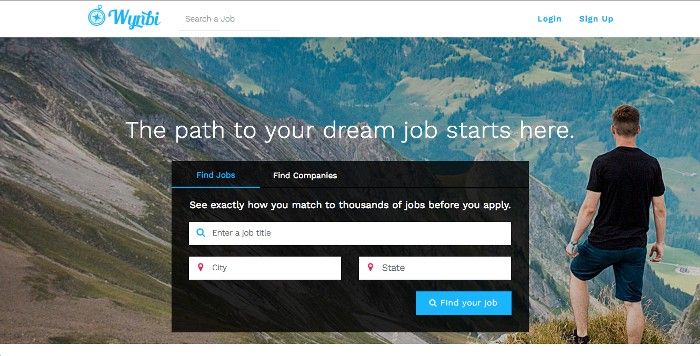“It’s really all about this idea of being on a journey, you’re going through your career, and there’s all these issues you’re going to have. How do you solve them?”
You probably don’t want to talk about professional social networks. I get it, I understand, I know that the name most closely associated with a social network for professionals is LinkedIn. I also know the name LinkedIn sets alarm bells ringing in every person’s head, a cacophony of sound that reminds us of unwanted connections and a barrage of posts that promise “14 ways to become a better business professional” but deliver an immense feeling of boredom. Trust me, I feel your pain, every time LinkedIn enters the conversation my eyes glaze over and I wake up two days later in a polo, using words like “synergy” and “vertical” and “ecosystem.” People, this is not ideal and that’s the point — we have plenty of great social networks for everyday use (Twitter is my preferred weapon of choice), but the professional world does not.
Let’s talk about some of the relevant things a professional social network should have. An algorithm that specifically matches job applicants to jobs based on uniform data, maybe even providing an exact percentage of fit, seems reasonable. The ability to map out your professional journey, starting in college and encompassing everything that happens until retirement, would certainly be nice. It would also be cool to make connections that actually help advance your career, be able to explore different careers and how you could make the transition, and ultimately be able to find the right job or promotion for you.
“I took a step back and looked at what professional networking is at its core,” said Brody Saunders, founder and CEO of Wynbi. “It’s a journey. It starts in college, or when you land your first job, and it lasts the rest of your life. The problems that you encounter are: trying to figure out what you want to do for a living; how do you land your first job; how do you know if you’re a good fit at a particular company; who’s going to be your mentor; who is going to help you get to the next level; and then once you land a job, how do you get a promotion? That was the genesis of the idea and we’ve built everything around that experience.”
Wynbi was started conceptually three years ago, officially launching on June 1, 2016 and accumulating users by promising to provide a way to not only map out a professional journey, but answer all the questions that go hand-in-hand with the experience. Users are able to create a profile and have their potential fit measured for any available job, companies are able to see the most precise fits for available openings, providing what Saunders calls “two-way insight, two-way information, all the time.”
“Our product uses uniform data to essentially allow you to see how you match to every job at a particular company by an exact percentage,” said Saunders. “We pulled all of the data from the Department of Labor Statistics. Everything you would use to create a resume or create a job posting is from that database. Let’s make sure everyone plays by the same rules, so we create a career profile based on that data, jobs based on that data, and they line up.”
After onboarding multiple Fortune 500 and Fortune 50 companies, Saunders is convinced Wynbi’s approach to bringing on businesses is their golden ticket. Other platforms have employed the pay and pray approach — companies pay up front to list jobs, then pray that the right candidate comes home to roost. Not only is this inefficient, but it requires a trust in the process that many companies aren’t willing to give (for good reason). Enter Wynbi’s approach, what they’re calling pay for performance.
“Companies can see a detailed overview of the people interacting with those jobs, they get all the metrics up front, and if they want to see who those people are and reach out to them, then they pay,” said Saunders. “You can post a job for free, have a bunch of people save, view, apply. And you can see what’s going on behind the scenes before you make a decision on whether or not you want to pay.”
Not everybody knows the exact job they’re after. Let’s say you’re a college student. You may or may not eat tons of Totino’s pizza. You may or may not play video games for 13 hours per day. You may or may not have any idea the career path you would like to take, much less the job to fulfill your dreams. This is okay, because Wynbi not only offers job matching capabilities, they offer career matching capabilities, allowing people at the early stages of their professional journey to find a field that suits them.
“College is a really great place to start the journey, we want to get in and help people at that phase all the way through,” said Saunders.
Wynbi has raised a total of $5 million in funding, taken from a variety of angel investors to build out the platform with a team of 10 based in downtown Salt Lake City. They are concerned with one thing — giving people the ability to track and enhance their professional journey, providing answers to all the questions that arise along the way. The website claims Wynbi as the “compass for your career” and if that’s the case, it’s time for business professionals to start channeling their inner Magellan.
“It’s really all about this idea of being on a journey, you’re going through your career, and there’s all these issues you’re going to have,” said Saunders. “How do you solve them? We’ve built a novel product in our ability to show people how they match and to quantify that in a way that shows them where they’re strong and weak.”



